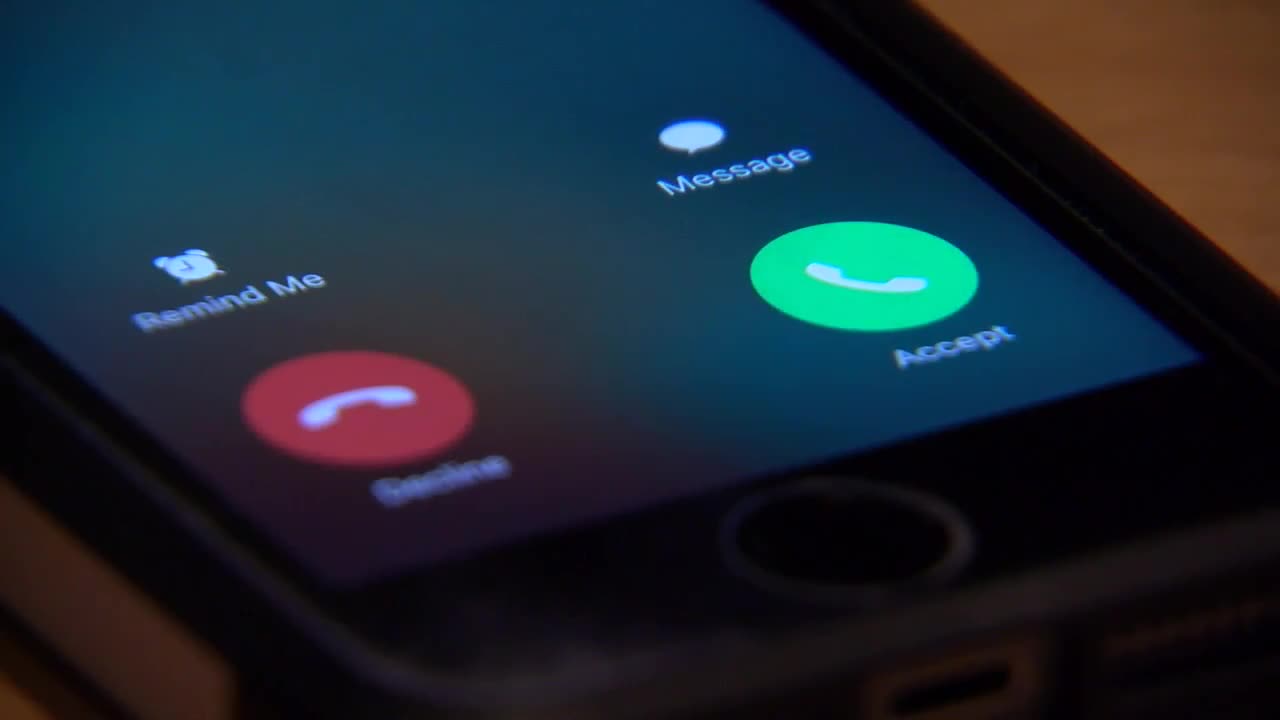PHOENIX — Nonstop phone calls are targeting Medicare and Medicaid recipients across Arizona, hoping to trick them into handing over their personal information.
The Department of Justice estimates Medicare fraud drains about $60 billion from the system every year.
"This happens every single day, more than we realize," said Dana Marie Kennedy, AARP Arizona state director. She said this issue continues to get worse.
Kennedy, who has worked with aging populations for over 25 years, said she believes the current scam attempts on seniors are the worst she has ever seen.
How the scams work
Seniors in Arizona are being inundated with phone calls and emails from scammers hoping to get their Medicare information.
"They're basically fishing to get information from a consumer," Kennedy explained.
"They're usually trying to get that Medicare number so they can bill Medicare for things that they shouldn't be billing Medicare for. And so, they might know the person's name, but they're basically saying, you know, ‘You may lose your Medicare if you don't validate this information.’"
Scammers also use other tactics to trick victims.
"Or they may say that you know, ‘We want to mail you a new Medicare card.’ Medicare is not going to call you to send you a new Medicare card unless you call Medicare saying that you needed to get a new card," Kennedy added.
Kennedy has not just heard from AARP members about these phone calls, she has been on the phone with the scammers herself.
"I asked them, you know, ‘You shouldn't be calling people asking this information," Kennedy said.
When asked what their response was, Kennedy said: "Why are you wasting our time? It's like, well, why are you wasting my time?"
How to protect yourself
If someone calls or emails you about your Medicare information, the first thing you should do is reach out to Medicare directly to see if it's a legitimate request.
They have a live chat option on their website, or you can talk to someone on the phone by calling 1-800-MEDICARE.
But you should know, if you are being contacted by someone about your Medicare coverage, more than likely, it’s a scammer.
"Medicare probably doesn't have the time or resources to call you," Kennedy explained.
The most important tip for people: Never give out your Medicare number to someone until you have verified who they are.
"Think of your Medicare number just as important as your social security number. You want to protect it," Kennedy said.
Don't be ashamed to report fraud
If you have fallen victim to these scammers, don't be embarrassed or ashamed. Please report it so you can help stop these types of fraud.
"First of all, somebody was calling them specifically to try and fraud them out of something. These people are really good at what they do," Kennedy said.
"So, nobody should be ashamed and not come forward, that allows the other people to be victimized."
You can report Medicare fraud directly to Medicare or to AARP's Fraud Watch Network.
Medicare Scams reported to AARP Arizona last month
- The consumer received calls from people posing as insurance agents for Medicare and Medicaid plans. He spoke to them for at least half an hour and gave them his SSN and Medicare number.
- The consumer received a call from someone asking if he had received his new Medicare card. The person who called him claimed to be from Medicare. The consumer claimed to be indisposed now and so did not provide his Medicare number, as the person had wanted him to. It came from a 231 area code, which is the consumer’s local area code.
- The consumer received a call asking her health questions and claiming to be from CVS. They transferred the call to someone named Sabrina from Health and Life, and the consumer hung up. They called her and told her that because she hung up, they were canceling her Medicare and wanted her to do a genetic cheek swap.
- The consumer received a call from someone who needed information from his Medicare card. She told him he would get a new plastic Medicare card. She knew his doctor’s name. He gave her his Medicare number.
- The caller is reporting that he is getting calls from scammers impersonating Medicare. The scammers inform the caller of receipt of a new Medicare card with a chip or one that is plastic instead of paper, which doesn’t exist (Medicare cards are paper and don’t have a chip) if being mailed to his attention. They wanted to verify his medical data. He declined to release any information or confirm. The caller did not engage.
- Caller reported that he has gotten a few calls from someone claiming to be with Medicare asking him to verify his information. He started to get uncomfortable with the questions, and there were certain things he would not answer. They started to threaten him, and that’s when he hung up.
- Consumer received multiple calls from someone claiming to be from Medicare. The person asked if he had received his newest Medicare card and claimed to have updated information regarding Medicare. The person knew his name, address, and DOB.
- The consumer received a call from Medicare Providers, saying they needed information to send his new plastic card. No confidential information or money was given.
- Consumer’s father received a call from someone supposedly from Medicare who asked for his Medicare number and DOB, both of which he gave.
- The consumer received a call from someone saying they were from Medicare and were offering a gift card. They asked for confidential personal information and his Medicare number. He was aware of the red flags and did not give out any personal or confidential information.
Do you need help with a consumer issue? Let ABC15 Know! Email Consumer@abc15.com.






